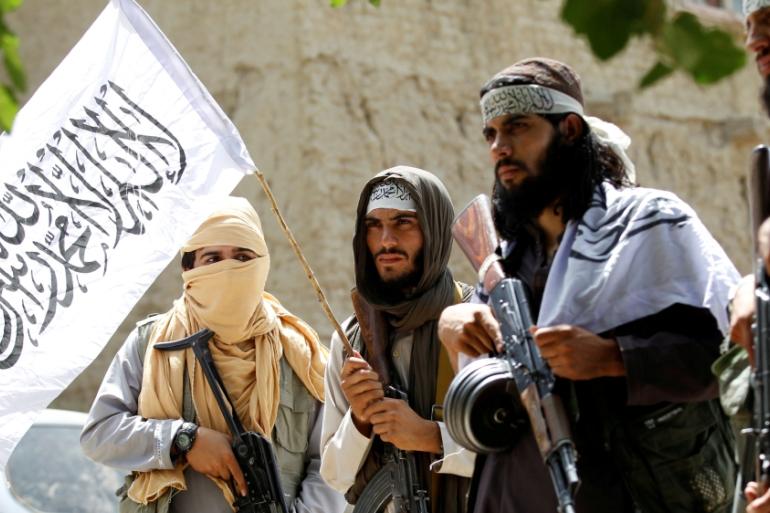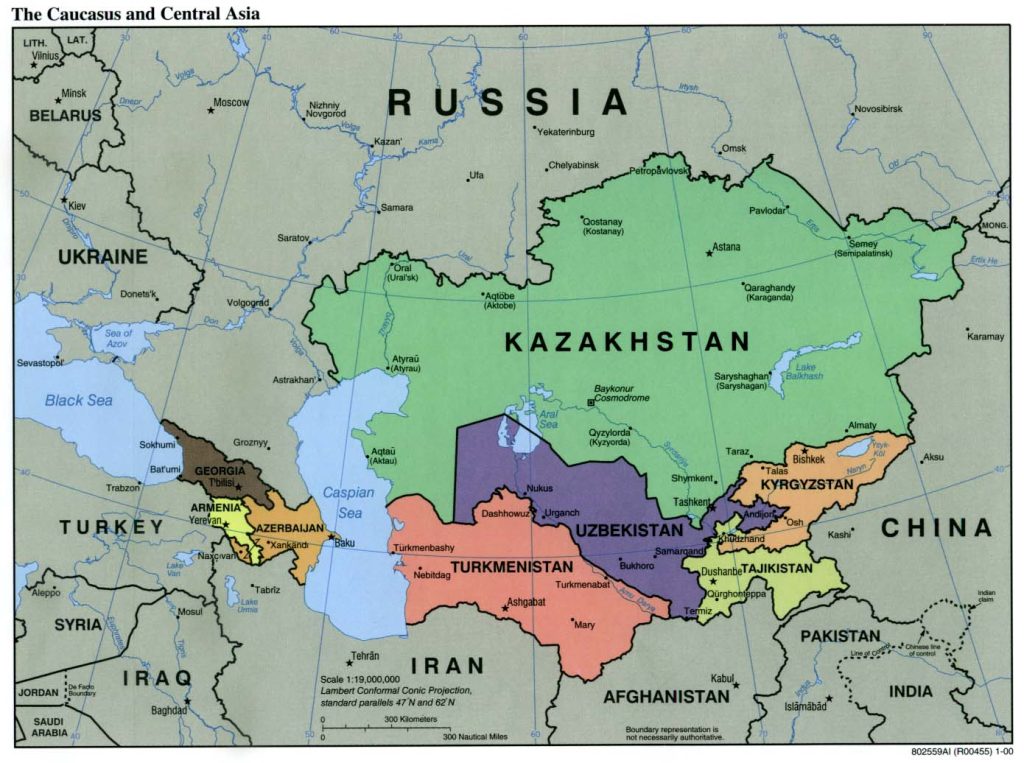
The withdrawal of the US and NATO troops from Afghanistan threatens to destabilize Central Asia – a region that has traditionally been in the Russian sphere of influence.
By Nikola Mikovic
There are fears in the Kremlin that the Taliban, especially its radical fractions, could spoil some of Russia’s plans in neighboring former Soviet republics.
The Taliban already controls large sections of Afghanistan’s border with Tajikistan and Uzbekistan. Moscow promised to use its military base in Tajikistan – hosting some 6000-7000 troops – to defend its allies from the threat coming from Afghanistan.
Thousands of Afghan servicemen and refugees have already fled to Tajikistan – a member of the Russia dominated Collective Security Treaty Organization (CSTO), and the Kremlin said it would help the Central Asian nation stabilize its border.
The problem, however, is that Russia used exactly the same rhetoric in May after Azerbaijani troops reportedly advanced more than three kilometres (two miles) into southern Armenia, apparently trying to “lay siege” to Lake Sev Lich that is shared by the two countries.
A blind eye
In reality, Moscow turned a blind eye to the border incidents. If Russia did not intervene to protect its ally Armenia, which is also a CSTO member, why would it defend Tajikistan from a potential Taliban incursion?
Moscow has at least two very important goals in the turbulent region. The first one is to preserve the strategically important part of the world in its geopolitical orbit in order to keep facilitating energy projects in the oil and gas sector, as well as in hydropower.
The second goal is to strengthen the Eurasian Union and potentially include some Central Asian nations, primarily Uzbekistan, into the Moscow-led supranational entity. Thus, in case of an unlikely Taliban attack on Tajikistan, Russia would still provide assistance to its ally.
Such a scenario, however, does not seem realistic, at least at this point. Nevertheless, Moscow is expected to use “the Taliban threat” as a pretext for increasing its influence in the region by sending more troops and establishing new bases in former Soviet republics bordering Afghanistan.
The problem, from the Kremlin perspective, is that the United States is also reportedly interested in establishing military bases and deploying troops across Central Asia.

“I would emphasize that the redeployment of the American permanent military presence to the countries neighboring Afghanistan is unacceptable”, said Russia’s Deputy Foreign Minister Sergei Ryabkov, warning Central Asian nations not to host the US troops.
It remains to be seen if the Kremlin will manage to prevent its Central Asian allies from changing their geopolitical vector and siding with the US. If things go wrong, the Russian leaders could always say that they were “deceived” by their “dear Western partners”, while the Kremlin propagandists would try to explain that Russia does not really need Central Asia.
The US, on the other hand, could benefit from a potential destabilization of the region, since its major geopolitical rivals – Russia and China – would have to deal with some serious problems in their neighborhood.
China’s Belt
A mayhem in the region would have a serious impact on the China’s Belt and Road Initiative, and both Moscow and Beijing could face with the rise of the Islamic terrorism, increased drug flow, as well as another refugee crisis.
However, even if the situation in Central Asia dramatically deteriorates, it is hard to imagine Russia invading Afghanistan to fight the Taliban.
In the Russian collective memory the Soviet intervention in the country in 1979 still has a very negative connotation. That is why the Kremlin will likely try to find a common ground with the Afghan movement.
The Taliban delegation has already held talks with Russian officials in Moscow on several of occasions, even though the group has been declared a terrorist organization by the Russian authorities. In other words, from the Russian perspective, the Kremlin negotiated with the terrorists.
The Taliban delegations, on the other hand, regularly stated that they were interested in developing good relations with Russia. Moscow on its part needs strong guarantees that the Afghan movement will not spread any form of radical Islam into Central Asia.
The Taliban could soon demonstrate if it is willing and to defeat the-so called Khorasan group – a branch of Islamic State of Iraq and the Levant operating in Central Asia. That could be a starting point in new relations between Russia and the Taliban in the post-US Afghanistan.
Nikola Mikovic is a Serbian journalist and a senior Geopolitical Analyst he publishes often for The Levant News.






